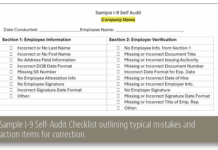
Several hot-button legislative proposals made it to Governor Newsom’s desk this year, many of which would change the landscape for California’s agricultural employers. For the first time since the COVID-19 pandemic, this year has been a “return-to-normal” year for California lawmakers, which means a return to aggressive legislation establishing and expanding workplace protections for employees. Here is a summary of the top six new laws California’s agricultural employers now have to deal with.
Card Check for Agricultural Employees
There have been numerous previous attempts to allow agricultural employees to organize under the ALRA utilizing a “card check” process. However, prior proposals have been vetoed by Governors Newsom, Brown and Schwarzenegger. Advocates for this legislation did not give up, however, and this time, surprising many, Governor Newsom signed into law Assembly Bill 2183.
Even more surprising was the manner in which Newsom signed the bill. While he signed AB 2183 into law, he simultaneously announced that he had reached an agreement with the bill’s sponsors to essentially replace AB 2183 with a new law next year.
Under AB 2183 as written, each January, an agricultural employer will have to decide whether they would agree to a “labor peace compact.” Among other things, this will prohibit the employer from making statements against the union in any organizing campaign or conducting “captive audience” meetings with employees. If the employer agrees to a labor peace compact, the employees will vote via a newly created mail-in ballot process (rather than the existing secret ballot election process.) However, if the employer does not agree to sign a labor peace compact, employees will be able to select a union via card check without an election.
However, the new bill announced by the governor for next year would essentially scrap this labor peace compact and mail-in ballot approach and constitute a straight card check process. Labor organizations would simply be able to organize agricultural workers by submitting a petition along with authorization cards signed by a majority of the employees with no election. A full summary of the new law can be found at fisherphillips.com/news-insights/california-agricultural-legislative-update-card-check.html.
Employment Discrimination and Cannabis
After several previous attempts to establish employment discrimination protections regarding the lawful use of cannabis, the first such bill made it to the governor’s desk and he signed it into law.
Assembly Bill 2188 prohibits adverse action based on 1) an employee’s use of cannabis off the job and away from the workplace, or (2) a drug-screening test that found the employee to have nonpsychoactive cannabis metabolites in their hair, blood, urine or other bodily fluids. While this restricts an employer’s ability to act based merely on metabolite testing, adverse action based on THC-positive testing will still be permitted.
While the bill specifies it does not permit an employee to possess or be “impaired” by cannabis on the job, this will be a challenge for employers. There is currently not a general, wide-spread and easy test for determining cannabis impairment.
AB 2188 does not apply to an employee in the building and construction trades, preempt requirements for federal contracts or interfere with specified employer rights to maintain a drug and alcohol-free workplace. This law does not go into effect until January 1, 2024. A full summary of the new law can be found here at fisherphillips.com/news-insights/california-workers-gain-new-cannabis-protections-what-employers-need-to-know.html.
Expansion of Pay Data Reporting and Posting of Pay Scale in Job Postings
California also continues to push the envelope when it comes to efforts to address pay inequities. Several years ago, the state enacted legislation to require certain employers with 100 or more employees to file pay data reports with the state.
This year, follow-up legislation (Senate Bill 1162) expands that existing law in several ways.
First, the bill requires all private employers with 100 or more employees to file such pay data reports, regardless of whether they are required to file a federal EEO-1 with the EEOC. Second, the date for submitting the report changes from March of each year to the second Wednesday of May. Third, SB 1162 expands the information required to be included in pay data reports to include median and mean hourly rates within each job category by race, ethnicity and sex. Fourth, the bill requires employers who have 100 or more employees hired through labor contractors to file a separate pay data report covering those employees. And finally, the legislation establishes significant civil penalties for failure to submit pay data reports.
Most of the debate this year around SB 1162 focused on a “public shaming” provision that would have required pay data reports to be disclosed to the public on a state website. Thankfully for employers, that provision was stricken from the bill before it made it to the Governor’s desk.
SB 1162 also addresses an issue that has been part of a growing trend in other states and local jurisdictions. The bill requires employers with 15 or more employees to include pay scale information in any job postings. The bill provides for administrative or civil enforcement of these and related provisions. A full summary of the new law can be found here at fisherphillips.com/news-insights/california-joins-growing-list-of-jurisdictions-to-require-pay-scale-information-in-job-postings-7-things-you-need-to-know.html.
Bereavement Leave
After several prior unsuccessful attempts, California has enacted a bereavement leave requirement into law. Assembly Bill 1949 applies to employers with five or more employees and allows employees to take up to five days of bereavement leave upon the death of a family member (using the same definition of “family member” as under CFRA.)
Bereavement leave under AB 1949 is unpaid, but an employee can use other available paid time such as vacation pay, personal leave, sick leave or compensatory time off.
Bereavement leave must be completed within three months of the death of the family member and is only available to employees who have worked for the employer for at least 30 days prior to the commencement of the leave.
Importantly for employers, the provisions of AB 1949 are in the Government Code rather than the Labor Code (meaning there will not be the possibility of PAGA claims for alleged violations of the law.) A full summary of the new law can be found here at fisherphillips.com/news-insights/california-mandates-unpaid-bereavement-leave-employees.html.

Family Leave to Care for “Designated Persons”
California’s family and medical leave law has seen some dramatic expansion of late. In recent years, the California Family Rights Act (CFRA) has been extended to cover smaller employers and expand the definition of covered family members to include adult children, siblings, grandparents, grandchildren and parents-in-law.
CFRA will now be extended even further with the governor’s signature of Assembly Bill 1041. It provides that in addition to the already-covered family members, an employee can take job-protected leave to care for a “designated person.”
The bill defines a designated person to mean any individual related by blood or whose association with the employee is the “equivalent of a family relationship.” The legislation does not clearly define what this means, so many employers are likely to be left scratching their heads trying to determine if someone is the equivalent of a family relationship.
AB 1041 provides that an employee may identify a designated person in advance and that an employer may limit an employee to one designated person per 12-month period. A full summary of the new law can be found at fisherphillips.com/news-insights/california-expands-family-paid-sick-leave-care-designated-person.html.
Emergency Conditions: Retaliation
Brought in response to concerns over reports of employees being required to work in unsafe wildfire conditions, Senate Bill 1044 prohibits an employer in the event of an “emergency condition” from taking adverse action against an employee for refusing to report to, or leaving, a workplace or worksite because the employee has a “reasonable belief” that the workplace or worksite is unsafe.
An emergency condition is defined to mean 1) conditions of disaster or peril caused by natural forces or a criminal act, or 2) an order to evacuate a workplace, worksite, a worker’s home or the school of a worker’s child. Notably an emergency condition does not include a health pandemic, so SB 1044 will not be applicable to employees that claim the worksite is unsafe due to COVID-19.
An employee’s belief that the workplace is unsafe is “reasonable” if a person under similar circumstances would conclude there is a real danger of death or serious injury if that person enters or remains on the premises. A full summary of the new law can be found at fisherphillips.com/news-insights/california-employers-face-challenges-prohibiting-retaliation-emergency-conditions.html.










